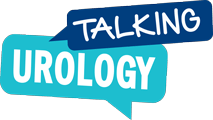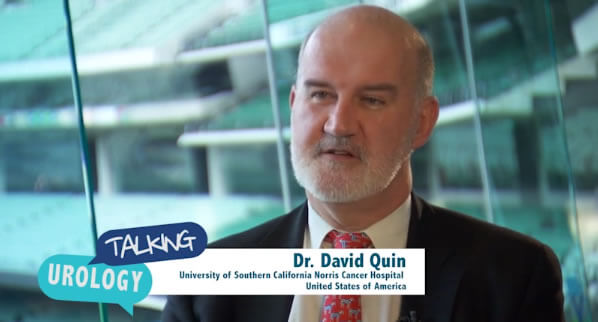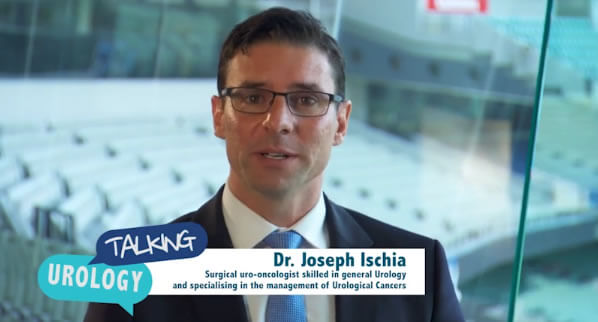ANZUP 2017 – Prof Silke Gillessen
Prof Silke Gillessen discusses the interesting findings from the Advanced Prostate Cancer Consensus Conference in St GallenTalking Urology podcast transcript
ANZUP 2017 Interviews – Prof Ian Davis and Prof Silke Gillesen
Ian: Hello, I am Ian Davis, I’m a medical oncologist from Melbourne and I’m the chair of ANZUP Cancer Trials Group. We’re speaking to you from the ANZUP Annual Scientific Meeting in July 2017. I’m very happy to have with me Professor Silke Gillesen. Silke is a medical oncologist from St. Gallen in Switzerland, one of our eminent international visitors. Silke with her colleague Aurelius Omlin chairs the Advanced Prostate Cancer Consensus Conference and the second one of those was just held in March of this year. Silke can you tell us a little bit about the APCCC and what happened since then?
Silke: Yes. We talked about that before, so actually the idea doing a consensus conference on prostate cancer really came off and then we realized how many topics there are in prostate cancer but we don’t have good evidence to judge in our daily clinical practice what to advice to a patient. We thought that it would be very good to have a consensus conference with a lot of experts who do mostly treat prostate cancer patients, to see what they would do in the same situation. And so, we started in 2015 very naive, very kind of like “let’s just try it” and it was actually pretty good success with everyone coming who we invited, really big names, and it was very interesting. We did it again, as you know, this year and I think it was, as you said, I think in your first speech, the ambiance was so good 2015 That we were like, “Oh hopefully this is going to work again in 2017” with all these fruitful discussions and really good things coming out of the conference. If anything, we thought it was even better and more discussions, more fruitful than the first time. I think the thing that really is amazing that in some topics we could really find very, very good expert consensus, and in other areas, there is really no consensus at all. I think that’s probably really the areas where we should do clinical trials and that’s helping us perhaps to find important topics. We should invest in for research, for clinical cancer research.
Ian: We had something like 150 pretty complex questions that we all considered as a panel after a couple of days of presentations. There were some areas where we had consensus on those but there are a few areas where there’s some surprising opinions and they were quite a few areas where there was no consensus at all. For someone who is reading about the conference or reading the papers and seeing these areas of disagreement, what are they to make out of that?
Silke: Yes. I think that’s why we really tried to comment in the paper the uncertainties and being a bit philosophical also to say that whatever the experts decided on is not the truth because we don’t have good data to support it. It maybe that some of these errors, I mean the experts are going to prove them wrong even if they had a consensus, and you were one of the really good commentators, to make that paper I think in a way also very critical about expert opinion, that this is the best that we have in the moment, so it can help in your daily practice to see what the expert would do but still you have to decide together with your patient what you want to do in an individual case. I mean, so we both have free access, so everyone really look at the paper and look at the sections that interest him/her and then see also the critical comments. That’s why he decided to do a discussion of each chapter to say, “Here we have some data that’s why probably people did that” and sometimes you really have really surprising results without a lot of good basic data to support it. I think, yes, you have to read the paper with the comments to make the most out of it, I think.
Ian: Groups like ANZUP are here to try to develop evidence-based practice. Some people might say a group of experts as more eminence-based practice. How would you respond to that sort criticism? We’ve got people who are highly opinionated and some people might say in an ivory tower, how do people working out in the general community take this information on board?
Silke: I totally agree. I mean, as we know in the pyramid, the expert opinion comes really down, down but that’s one expert, right? So, what we’re trying to do is like really having this anonymous voting. We have 60 experts and so you get perhaps a bit more of a balanced expert opinion than just only asking one expert. I also have to be into consensus conferences and that were not so strictly organized as we did with the Delphi process and everything. And then, sometimes if you have someone who is very loud, one expert is very loud, this opinion is going to make it into the consensus result. For us, I think this voting really makes everyone very free even if the very eminence experts say something, you don’t have to be the same opinion and vote for it. Yes, it’s not high-level eminence, but is probably bit more than just like eminence from one expert, it’s like multi-eminence opinion but its hopefully a bit more valuable.
Ian: Another thing I’ve noticed that of the process was how the field had moved on over only two years. There are things that we thought in 2015 that we no longer thought to be the case in 2017.
Silke: That’s amazing to me as well, right? So, like whenever something comes up now in the conference, it’s like now the ASCO Data showing that Abiraterone together with ADT gives a survival benefit as well as Docetaxel in addition to ADT. All of a sudden, all these new questions pop up, right? So, are we giving abi? Are we giving those Docetaxel in addition to ADT? It’s key for the patients who are not fit for Docetaxel, but the others, which one is better? You have a short course of chemotherapy or you have like treatment until progression with a drug 4 tablets plus 5mg of Prednisone. I mean, there are questions coming with every new kind of clinical research that comes out and I think that’s fascinating, right? That with the new data we’re having, we are generating new questions for daily clinical practice that have not been addressed in the clinical trial because at that time the standard was ADT alone and I think that’s actually a fascinating thing and that’s also very kind of good to see how much progress we’re doing.
Ian: Well, it’s a great privilege to be part of it. Thank you so much for coming to the ANZUP Annual Scientific Meeting it’s been wonderful having you.
Silke: It was a fantastic time in Australia. I want to thank you and Margaret who did really everything to make this a fantastic conference. Thank you.












